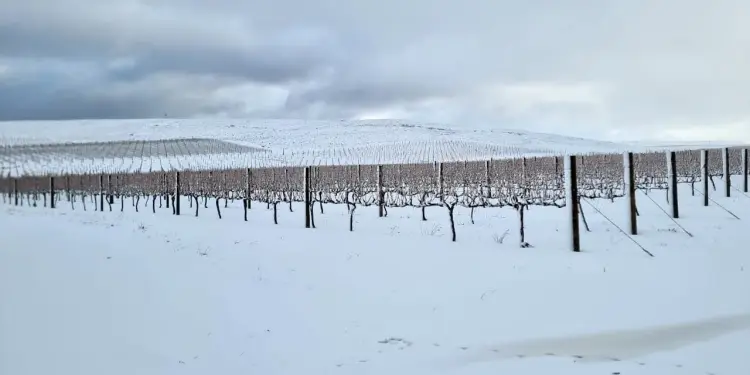Farmers across several provinces are grappling with severe crop damage following a weekend marked by black frost and heavy rains. Key agricultural areas have reported significant losses, prompting urgent calls for government intervention and financial support.
In the Western Cape, snow-covered mountains are a striking testament to the severe weather conditions impacting local agriculture.
Limpopo faces devastating crop losses
Limpopo farmers are facing a grim outlook after black frost swept across the province, causing extensive damage to crops and infrastructure. According to Henk van de Graaf, chairperson of TLU SA’s north region, there have been “tremendous losses” to potatoes, tomatoes, and various vegetables. Areas such as Vivo, Levubu, Marble Hall, and Bela-Bela have been particularly hard-hit.
“Potato farmers are especially vulnerable,” Van de Graaf noted, “having already suffered in previous seasons.” He emphasised the need for financial institutions to support these struggling farmers.

Image: Supplied/Arrive Alive
TLU SA is calling for a thorough damage assessment and urges all affected producers to report details such as location, impacted crops, and estimated losses to their regional offices or Danie Prins, the regional manager.
Additionally, TLU SA has requested that Limpopo’s MEC for agriculture, Grace Kekana, and national minister of agriculture, John Steenhuisen, visit the affected areas to assess the damage and explore potential assistance programmes.
Western Cape braces for more severe weather
The South African Weather Service (SAWS) has warned that further winter weather systems are expected to affect the Western Cape in the coming weeks. Heavier snowfall of 15cm to 30cm could lead to road and mountain pass closures and the loss of vulnerable livestock in the southern high ground of the Northern Cape and the western high ground of the Western Cape.
SAWS advised residents and small stock farmers to take necessary precautions to ensure the safety and well-being of their animals. Additionally, very rough and high seas, with wave heights of 6 to 9 meters, are expected along the Western Cape and Northern Cape coasts, potentially spreading to the Eastern Cape coast.
This could result in damage to coastal infrastructure, disruptions to harbors and ports, and pose a danger to life and medium to large vessels.
Eben du Plessis, spokesperson for Eastern Cape Agriculture, confirmed that warning systems are in place for farmers with small livestock to shelter their animals and prevent losses and damages.
ALSO SEE: SOUTHERN SUN THE CULLINAN REOPENS AFTER REFURBISHMENT
Image: Pexels

